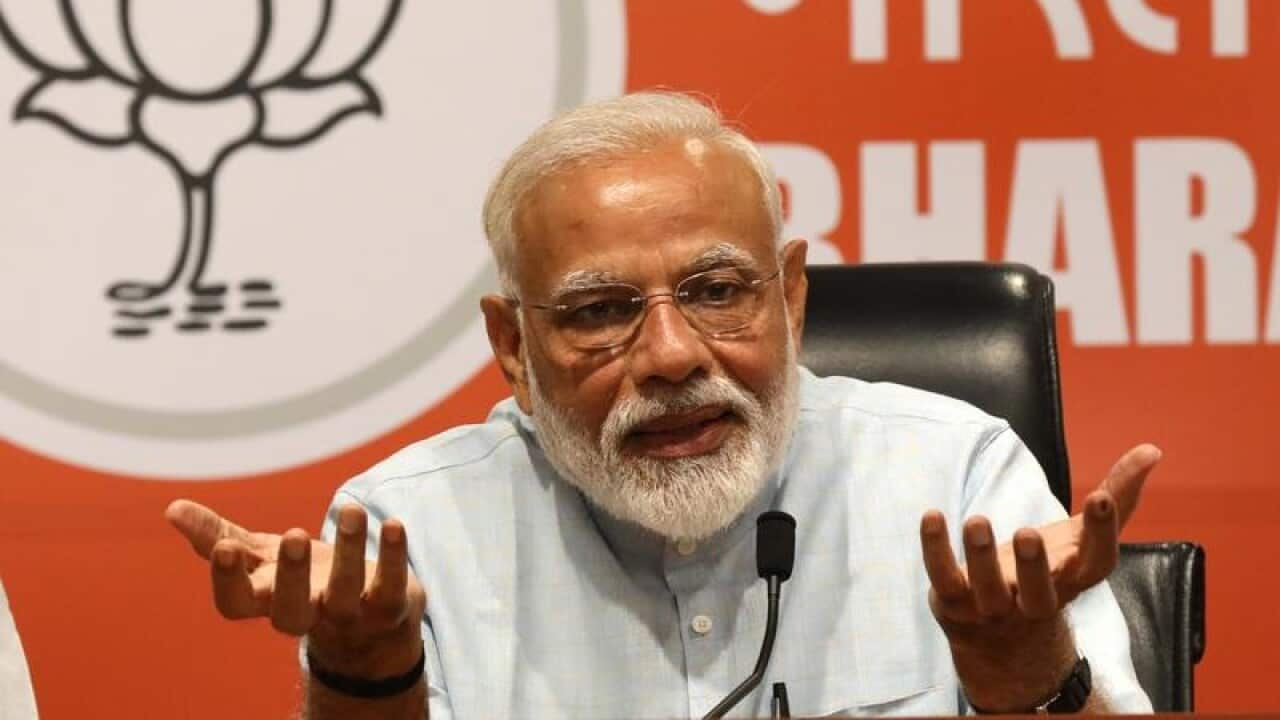India's ruling Bharatiya Janata Party (BJP) is to meet coalition partners to discuss a new government, BJP sources say, after exit polls predicted a clear general election victory for the party led by Prime Minister Narendra Modi.
The talks will be on Tuesday afternoon at the BJP's headquarters in New Delhi and will be led by the party president, Amit Shah, one of the party sources said.
The sources declined to be identified as they are not authorised to speak about the meeting.
Nalin Kohli, a spokesman for the BJP, declined to comment.
India's seven-phase general election, billed as the world's biggest democratic exercise, began on April 11 and ended on Sunday. Votes will be counted on Thursday and results are likely the same day.
Modi's BJP-led National Democratic Alliance (NDA) is projected to win anything between 339-365 seats in the 545-member lower house of parliament with the Congress-led opposition alliance getting only 77 to 108, an exit poll from India Today Axis showed on Sunday.
A party needs 272 seats to command a majority.
The predicted BJP margin of victory is bigger than opinion polls indicated in the run-up to the vote, when most surveys showed the NDA would be the largest alliance but would fall short of an overall majority.
Arun Jaitley, finance minister in the BJP government, said he was confident in the exit polls.
"When multiple exit polls convey the same message, the direction of the result broadly would be in consonance with the message," Jaitley said in a blog post on Monday.
Indian stock markets and the rupee were sharply higher on expectation the business-friendly Modi would stay on at the helm.
Congress spokesman Sanjay Jha cast doubt on the exit polls, saying on Twitter he believed they were wrong.
"If the exit poll figures are true then my dog is a nuclear scientist," Jha said, adding he expected the next prime minister would come from outside the BJP alliance.
Modi and his BJP faced criticism in the run-up to the election over unemployment, in particular for failing to provide opportunities to young people coming onto the job market, and for weak farm prices.
But Modi rallied his Hindu nationalist base and made national security a central theme of the campaign after a surge in tension with Pakistan in February following a suicide bomb attack in Indian-controlled Kashmir by Pakistan based militants.
Modi ordered air strikes on a suspected militant camp in Pakistan, which led to a surge in tension between the nuclear-armed neighbours.
But many Indians applauded Modi's tough stand and he was able to attack the opposition for being soft on security.

